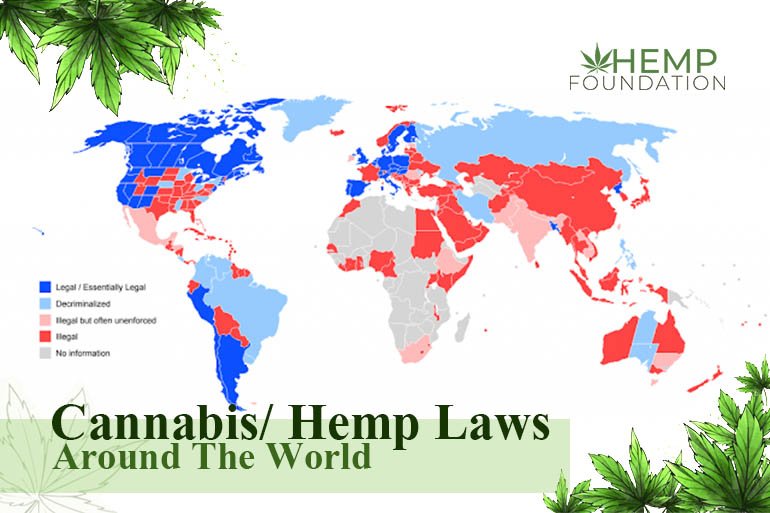Decoding Georgia's Hemp Laws: Purchasing Hemp Products Safely And Legally

Table of Contents
Georgia's Legal Framework for Hemp Cultivation and Sale
The 2018 Farm Bill significantly impacted the hemp industry, federally legalizing hemp with less than 0.3% Delta-9 THC. This legalization paved the way for Georgia to establish its own regulations for hemp cultivation and the sale of hemp-derived products.
H3: The 2018 Farm Bill and its Impact on Georgia:
The 2018 Farm Bill's legalization of hemp removed it from the Controlled Substances Act at the federal level. Georgia responded by creating its own regulatory framework to oversee hemp production and sales within the state, ensuring compliance with federal guidelines while also implementing state-specific rules. This framework aims to balance the burgeoning hemp industry with public safety concerns.
H3: Georgia's Hemp Farming Regulations:
Georgia's Department of Agriculture oversees the state's hemp farming regulations. Farmers need to obtain licenses before cultivating hemp, adhering to strict guidelines on acreage limits, THC thresholds, and detailed reporting requirements. Failing to comply with these regulations can result in penalties, including license revocation.
-
Key aspects of Georgia's hemp farming regulations:
- Licensing requirements for cultivation.
- Strict THC limits (generally below 0.3%).
- Detailed record-keeping and reporting requirements.
- Compliance with specific pesticide and fertilizer regulations.
- Regulations regarding transportation and storage of hemp.
-
Relevant government agencies:
- Georgia Department of Agriculture (GDA)
- Georgia Department of Public Health (DPH) (for product safety aspects)
H3: Legality of Hemp-Derived Products in Georgia:
Various hemp products are legal in Georgia, provided they comply with the established THC limits. This includes CBD oil, hemp flower, edibles, topicals, and more. However, it's crucial to understand the permissible THC levels to avoid legal complications.
-
Examples of legal hemp products and allowed THC concentrations:
- CBD oil (THC < 0.3%)
- Hemp flower (THC < 0.3%)
- CBD edibles (THC < 0.3%)
- Topical CBD creams and lotions (THC < 0.3%)
-
Restrictions on specific types of hemp products:
- Marketing claims must be truthful and not misleading. The GDA actively monitors claims made about hemp product effects.
- Some product forms might have additional restrictions or require specific labeling.
Identifying Legitimate Hemp Products in Georgia
Purchasing hemp products from reputable sources is paramount. Consumers need to be vigilant about product authenticity to avoid health risks and legal issues.
H3: Understanding Hemp Certification and Lab Testing:
Always look for third-party lab testing results, often presented as Certificates of Analysis (COAs). COAs confirm the product's purity, potency, and THC content. A reputable COA will clearly state the THC percentage, CBD percentage, other cannabinoids present, and details about any pesticides detected.
-
Significance of COAs and information they should contain:
- THC percentage (must be below 0.3% to be legal)
- CBD percentage (indicates product potency)
- Other cannabinoids (like CBG, CBN)
- Testing for heavy metals, pesticides, and mycotoxins.
-
Reputable labs conducting hemp product testing: (Note: Insert links to reputable labs here - this will require research to find appropriate labs and confirm their validity).
H3: Avoiding Counterfeit and Mislabeled Products:
Counterfeit hemp products pose significant health risks. Be wary of products with vague labeling, inconsistent information, or those lacking a COA. Read online reviews and only purchase from trusted retailers.
-
Tips for identifying potentially unsafe products:
- Lack of clear labeling with all relevant information.
- Absence of a Certificate of Analysis (COA) from a third-party lab.
- Inconsistencies or misleading information on the packaging or website.
- Unusually low prices compared to competitors.
-
Potential health risks: Unregulated products may contain harmful contaminants or have inaccurate potency levels.
Purchasing Hemp Products Safely in Georgia
Making safe and legal purchases requires careful consideration of where you buy your products.
H3: Where to Buy Hemp Products Legally:
Prioritize retailers that are transparent about their sourcing, testing procedures, and product information. Look for retailers who readily provide COAs.
- Places to buy legal hemp products in Georgia:
- Online retailers with strong reputations and customer reviews.
- Local health food stores and dispensaries that specialize in hemp products.
- Pharmacies carrying reputable CBD brands.
H3: Understanding Your Rights as a Consumer:
Georgia consumers have certain protections when purchasing hemp products. If you encounter a problem, document everything and contact the retailer or relevant authorities.
- Consumer rights: The right to accurate product information, the right to receive a safe and legal product as advertised, and the right to seek recourse for faulty products.
- Steps to take if you encounter a problem: Contact the retailer first, file a complaint with the GDA or Attorney General's office if necessary.
Conclusion:
Navigating Georgia's hemp laws requires understanding the legal framework, specifically the THC limits and the importance of third-party testing. Always look for a Certificate of Analysis (COA) and buy from reputable sources to ensure you're purchasing safe and legal hemp products in Georgia. By being informed and responsible, you can enjoy the benefits of hemp products while staying within the bounds of the law. Continue researching Georgia's hemp laws, and make safe and legal hemp purchases!

Featured Posts
-
 Reb Dlya Ukrainy Germaniya Vozglavila Koalitsiyu Iz 11 Stran
May 27, 2025
Reb Dlya Ukrainy Germaniya Vozglavila Koalitsiyu Iz 11 Stran
May 27, 2025 -
 Osimhens Impact On Napolis Victory Over Galatasaray A Turkish Perspective
May 27, 2025
Osimhens Impact On Napolis Victory Over Galatasaray A Turkish Perspective
May 27, 2025 -
 Viyskova Dopomoga Ukrayini Vid Nimechchini E11 Mlrd Do 2029 Roku Slova Podyaki Umyerova
May 27, 2025
Viyskova Dopomoga Ukrayini Vid Nimechchini E11 Mlrd Do 2029 Roku Slova Podyaki Umyerova
May 27, 2025 -
 Gwen Stefani Faces Faith Based Backlash Fan Reactions
May 27, 2025
Gwen Stefani Faces Faith Based Backlash Fan Reactions
May 27, 2025 -
 Embrace The Vibe Janet Jacksons Influence On Fashion From Essence
May 27, 2025
Embrace The Vibe Janet Jacksons Influence On Fashion From Essence
May 27, 2025
